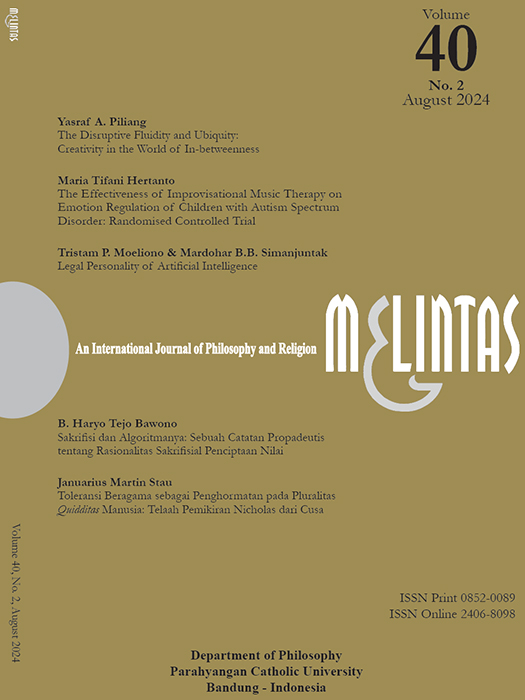Legal Personality of Artificial Intelligence
Main Article Content
Abstract
This paper examines the ontology of artificial intelligence (AI) within the context of contemporary society. With the rapid progression of technology, the definition of legal subjects has become increasingly ambiguous, as the technological landscape continues to evolve. The orthodox perspective fails to provide adequate solutions to this problem. An alternative approach, as put forth by Visa A.J. Kurki’s bundle theory offers a potential pathway, yet AI’s intrinsic nature surpasses the minimum thresholds defined by Kurki’s model. The authors propose a periscopic model that explores the interaction between the material world and the virtual or augmented sphere, often referred to as the metaverse. This article contends that the current philosophical foundation of law is both outdated and insufficient, primarily due to the shift from singular to plural forms of agency. AI has transitioned from being purely instrumental or intermediary, as observed in Artificial Narrow Intelligence (ANI), to autonomous decision-making entities, exemplified by Artificial General Intelligence (AGI). Drawing on theoretical insights from Yuval Noah Harari, the paper underscores the need for a new conceptual framework to address AI’s lack of a material entity. In conclusion, the paper asserts that the recognition of AI as legal subjects is an inevitable development.
Article Details

This work is licensed under a Creative Commons Attribution-NonCommercial 4.0 International License.
MELINTAS applies the Creative Commons Attribution (CC BY NC) license to articles and other works we publish. If you submit your paper for publication by MELINTAS, you agree to have the CC BY NC license applied to your work.
